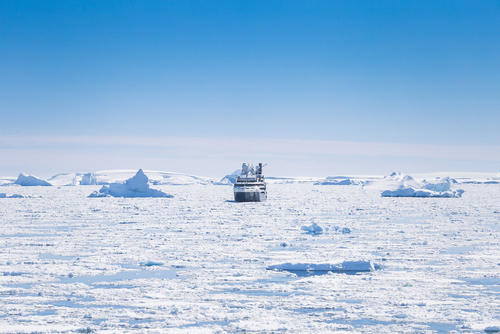The world’s first international search and rescue exercise (SAREX) in a remote polar zone recently took place.
The search and rescue exercise was performed to identify and address the challenges, constraints and opportunities involved in Arctic Massive Rescue Operations (AMRO) in remote polar areas, in order to support safe navigation in polar waters.
The field exercise itself gathered a group of 67 people, who were tasked with setting up a polar survival camp to last over a 24-hour period on the ice, among other tasks.
The exercise brought together teams from Russia, Greenland, Iceland, Canada, the United States and Norway. This international initiative involved academic experts, the ship’s officers and crew, as well as remotely connected teams and head office managements.
The outcomes of the SAREX will be shared with polar environment experts to support better understanding of the impact of extended periods of time spent on polar ice.
The outcomes will also help the expedition cruise industry and rescue centres across the world to devise new safety strategies and improve their understanding of the potential impacts of a crisis situation in extreme polar conditions.
For BV, the exercise was an opportunity to test all rescue and safety equipment, particularly the ‘Ice Cube’, camp kit, group survival kit, floating polar shelters, and survival suits. The conclusions were very positive with all equipment tested exceeding safety criteria and standards and those required by the tourism industry (IAATO and AECO).
Given the extreme conditions of the polar environment, safety is an absolute priority and can be a matter of life or death
Laurent Leblanc, Senior Vice President Technical & Operations at Bureau Veritas Marine & Offshore, said.






























































